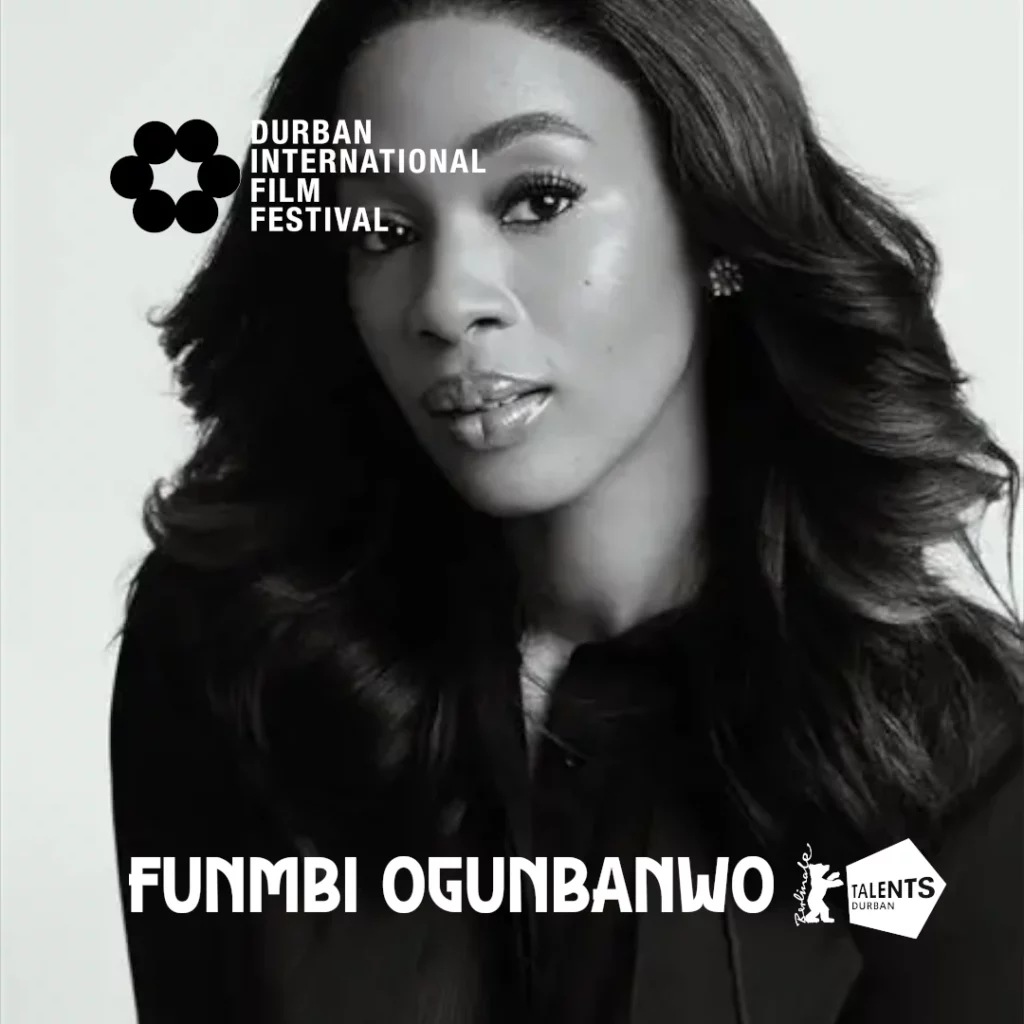Historic Firsts and Telling African Stories Globally
At this year’s Durban International Film Festival (DIFF), the African premiere of My Father’s Shadow marked a poignant moment—not just for the film, but for African cinema as a whole. Produced by Funmbi Ogunbanwo, the semi-autobiographical film set during Nigeria’s 1993 election crisis has already etched its name into history as the first Nigerian film ever selected for the prestigious Un Certain Regard section at Cannes.
In this conversation, Funmbi reflects on the emotional journey of bringing the film back to the continent, the importance of creating access for African stories, and how her studio, Fatherland, is shaping narratives that resonate both locally and globally.
How did it feel to experience the African premiere of My Father’s Shadow at DIFF?
It was truly special. I’m grateful to the Durban International Film Festival for giving us the space to screen on the continent. There’s something deeply affirming about bringing the film home and seeing how people here resonate with it. The audience questions showed us that it sparked conversation—that’s all we hoped for. It made people feel something, and that’s a gift.
How did the audience’s reaction at DIFF compare to the premiere at Cannes?
Cannes is such a global and prestigious space—you see people from all over the world engaging with the film. But what was powerful was that the emotional impact was similar. Whether in Cannes or Durban, people felt connected to the story. That said, I wished we had a larger turnout at Durban. African filmmakers need that support, especially at home. We live for those audience engagements, and I hope that in future, more people show up for these stories.
Take us back to the moment you learned about the Cannes selection—where were you?
[Laughs] I remember it perfectly. I was in my car when I saw a WhatsApp message from my partners, Wale and Akin Davis, who directed and wrote the film. I don’t recommend texting while driving, but I saw the message and freaked out. I called them via video and just cried. It was an emotional moment, real gratitude.
What has been the ripple effect of that historic Cannes selection for you and for Fatherland?
Honestly, gratitude is the word. To God, to the crew—many of whom were from Nigeria, Kenya, and South Africa. We never set out to be the first Nigerian film at Un Certain Regard, but now that we are, it has set a historical record and created access. That’s what we want to continue doing—showing that African stories belong on global stages.
It’s not just about pressure now—it’s about responsibility. This was our first feature film as a company, and it’s shown us that we can do this. Over 90% of the crew was African, and that’s what excites me. We’re building something that’s authentic and globally relevant.
Can you tell us more about Fatherland Studios and its mission?
Fatherland is a modern studio based in Lagos and London, founded six and a half years ago by my business partner Wale Davis and myself. His brother, Akin Davis, who directed My Father’s Shadow, is also a partner.
We produce across short form (commercials, music videos, podcasts) and long form content, including films. Our focus is on culturally specific stories from across Africa that also have universal themes. We want our storytelling to feel organic—and to do it with people we love and trust.
What’s next for Fatherland? Any teasers?
Let’s just say, watch this space. Our slate is robust and exciting, but I won’t say too much yet. We’re committed to telling rich, diverse stories and continuing to contribute to how African storytelling is seen and experienced globally.
Final thoughts?
This journey has been humbling. Our film is set in Lagos during one of Nigeria’s most turbulent political moments, yet it speaks to universal themes: family, reconciliation, and identity. I’m proud of what we’ve built and can’t wait to share more.
Catch the film at DIFF: https://ccadiff.ukzn.ac.za/diff46/my-fathers-shadow/
This review emanates from the Talent Press programme, an initiative of Talents Durban in collaboration with the Durban FilmMart Institute and FIPRESCI. The opinions expressed in this article are those of the author (Alice Johnshon) and cannot be considered as constituting an official position of the organisers.
Visit https://ccadiff.ukzn.ac.za/ for full screening details for the Cape Town and Johannesburg screenings Watch the full interview with Funmbi Ogunbanwo here: https://youtu.be/5WF967B9JWI

